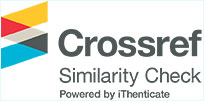Ethics
Publication Ethics and Malpractice Statement of Hydrological Research Letters (HRL)
HRL Editorial Board, 2017
Japan Society of Hydrology and Water Resources (JSHWR) is a trans-disciplinary academic society, composed of various scientific fields. Hydrological Research Letters (HRL) is an international journal published jointly by Japan Society of Hydrology and Water Resources (JSHWR), Japanese Association of Groundwater Hydrology (JAGH) and Japanese Association of Hydrological Sciences (JAHS), and Japanese Society of Physical Hydrology (JSPH), aiming at rapid exchange and outgoing of information in these fields. In order to develop the scientific fields of hydrology and water resources, the accumulation of original data is important as well as the publication of original ideas. This “ethics and statement” is prepared to become thorough the publication policy of HRL.
1. Editor-in-Chief and Editors (hereinafter, C&E) should be unbiased among authors, reviewers, and the corresponding Associate Editor (AE).
2. An Editor should closely cooperate with the corresponding editor, edit the manuscript fairly and evenly, determine and report the acceptance of rejection of the manuscript to the Editorial Board.
3. C&E should maximally respect the decision of the corresponding AE and reviewers. If C&E reject their decision, they should ask the corresponding editor and reviewers the process to the decision and why they come to it, then, explain the reason of the rejection of their decision in a careful manner to be understood.
4. C&E and corresponding AEs should not impose personal opinions and methodology to authors.
5. C&E and corresponding AEs should not depend on the obscure standard such as “level and superiority of the paper” when they decide the acceptance or rejection of the manuscript.
6. Every manuscript has new findings and information, which is sometimes invaluable for other readers.
・ Corresponding AEs handle reviewer’s comments, however, the AEs leave the authors to reply the comments. The AEs should not ask the authors to revise the small matters excessively. Even if the authors don’t accept the comments, the AEs should not come to the decision of reject if the authors explain the reason rationally.
・ When the revised manuscript is submitted, corresponding AEs should accept it if the authors properly reply to the comments unless fatal errors are apparent, even if opinions among reviewers, the editors, and the authors are different.
7. Corresponding AEs and reviewers should keep the deadline of the review. They should not delay the publication beyond necessity.
8. C&E, corresponding AEs and reviewers must not cite results of papers without the permission of authors. If they want to cite the results, they have to ask the authors for the permission in advance.
9. If C&E and corresponding AEs convince the fact that published paper contains fatal errors, they should publish an appropriate paper pointing out the errors and, if possible, correcting them.



